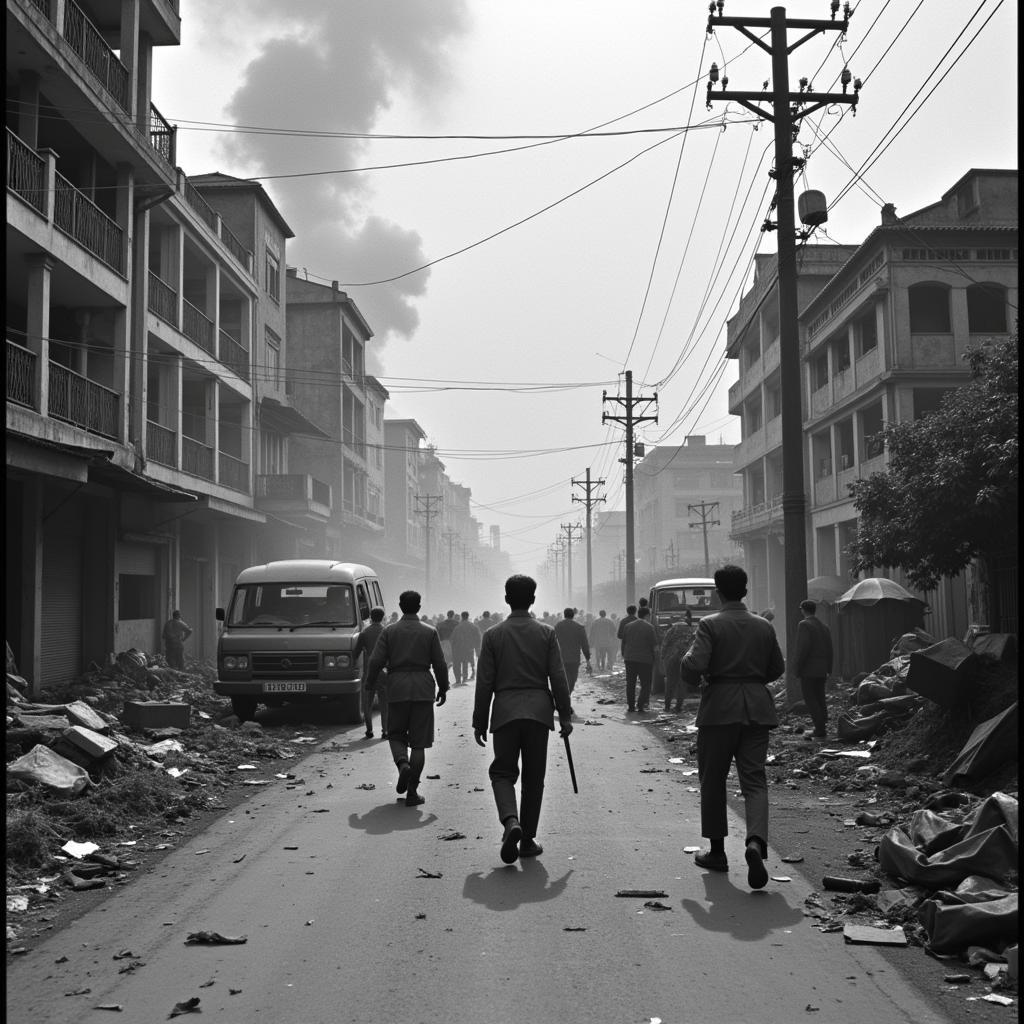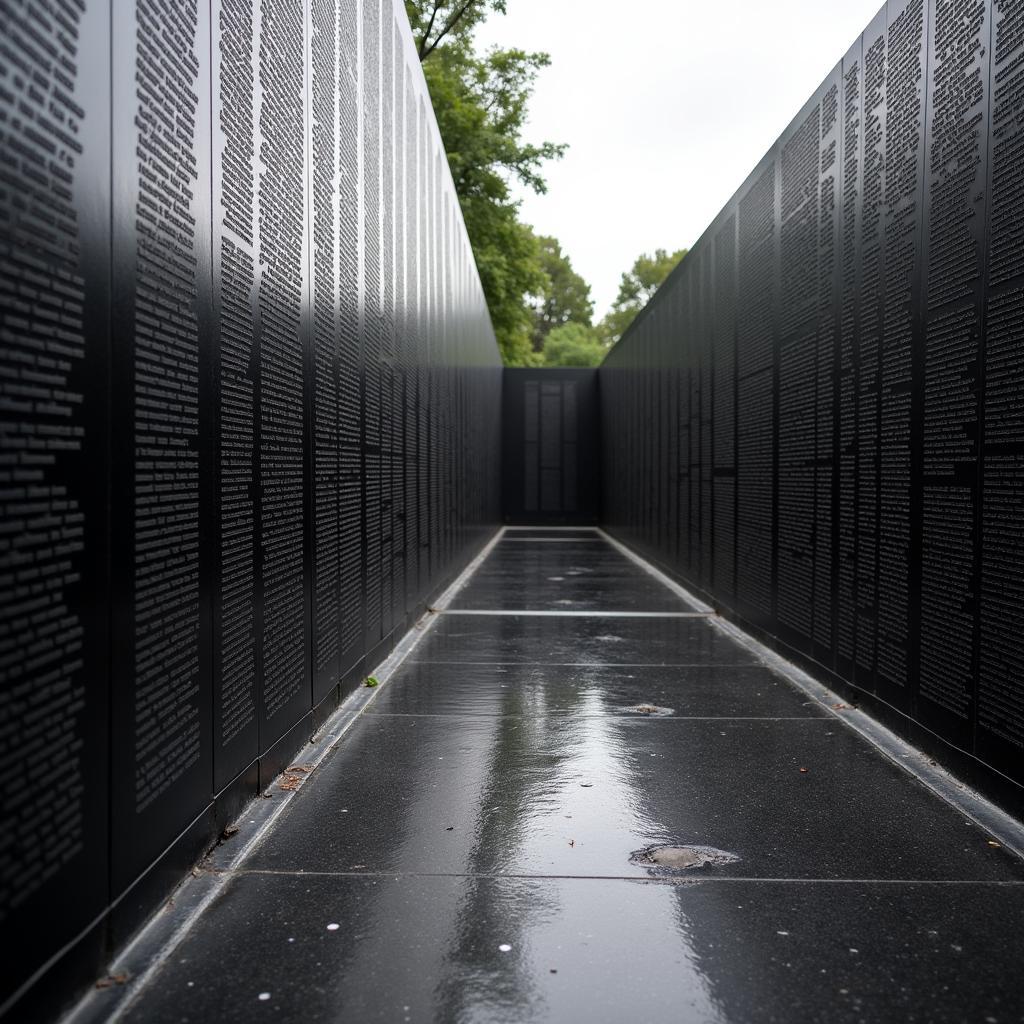The Vietnam Vs America War, also known as the Second Indochina War, remains a significant historical event that continues to shape perspectives on global politics and conflict. This article delves into the intricacies of the war, exploring its causes, major events, key figures, and lasting impact.
Roots of Conflict: Understanding the Genesis of the Vietnam vs America War
The seeds of the Vietnam vs America War were sown in the ashes of French colonialism. After World War II, Vietnamese nationalists, led by Ho Chi Minh, fought for independence from France, culminating in their victory at Dien Bien Phu in 1954. The Geneva Accords that followed divided Vietnam into North and South, with elections planned for 1956 to reunify the country.
However, the United States, fearing the spread of communism in Southeast Asia, supported the non-communist government in South Vietnam and blocked the reunification elections. This intervention, driven by the Domino Theory, which posited that the fall of one Southeast Asian nation to communism would lead to the fall of others, marked the beginning of America’s deep entanglement in Vietnam.
Escalation and Engagement: The Vietnam vs America War Intensifies
The 1960s witnessed a dramatic escalation of the Vietnam vs America War. The communist Viet Cong, supported by North Vietnam, launched a guerrilla war against the South Vietnamese government. In response, the U.S. increased its military aid and sent combat troops to Vietnam.
The Tet Offensive in 1968, a coordinated attack by the Viet Cong and North Vietnamese Army on major cities and towns in South Vietnam, proved to be a turning point in the war. Although militarily a failure for the communists, it exposed the credibility gap in U.S. government pronouncements about the war’s progress, fueling anti-war sentiment back home.
 Tet Offensive in Saigon
Tet Offensive in Saigon
A Nation Divided: The Vietnam vs America War and Its Impact on American Society
The Vietnam vs America War deeply divided American society. While some supported the war effort, viewing it as a necessary fight against communist expansion, others vehemently opposed it, questioning its morality and the draft system that sent young Americans to fight in a distant land.
Protests against the war escalated, becoming a defining feature of the counterculture movement of the 1960s. The war also highlighted racial and social injustices within the U.S., as African American soldiers were disproportionately represented in combat roles.
Legacy of the Vietnam vs America War
The Vietnam vs America War ended in 1975 with the fall of Saigon to North Vietnamese forces. It left an indelible mark on the political landscape of Southeast Asia and had profound consequences for the United States. The war led to a reassessment of U.S. foreign policy, a decline in public trust in the government, and a shift in cultural attitudes towards war and military intervention.
 Vietnam War Memorial in Washington, D.C.
Vietnam War Memorial in Washington, D.C.
Conclusion: Reflections on a Turbulent Past
The Vietnam vs America War serves as a stark reminder of the human cost of conflict and the complexities of international relations. Understanding its origins, evolution, and consequences remains crucial for navigating contemporary geopolitical challenges and promoting peace in a globalized world.
FAQs:
- What were the main causes of the Vietnam vs America War?
- How did the Tet Offensive impact the course of the war?
- What were the long-term consequences of the war for the United States?
- How did the Vietnam vs America War affect Vietnamese society?
- What lessons can be learned from the Vietnam vs America War?
For further information and resources on the Vietnam vs America War, please visit our website or contact us at [email protected]. Our team of experts is available 24/7 to answer your questions and provide support.